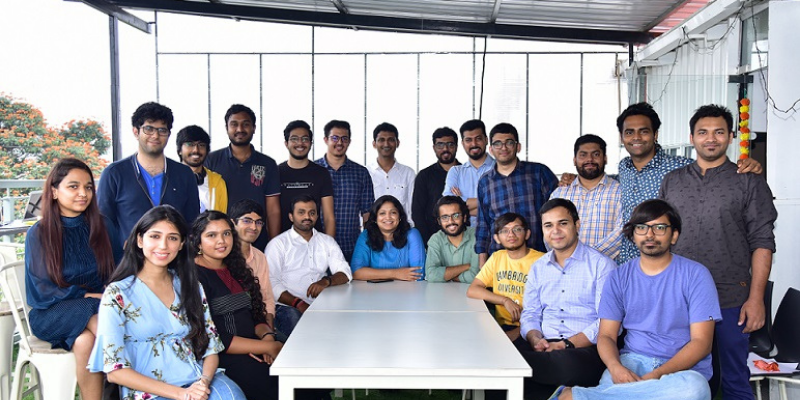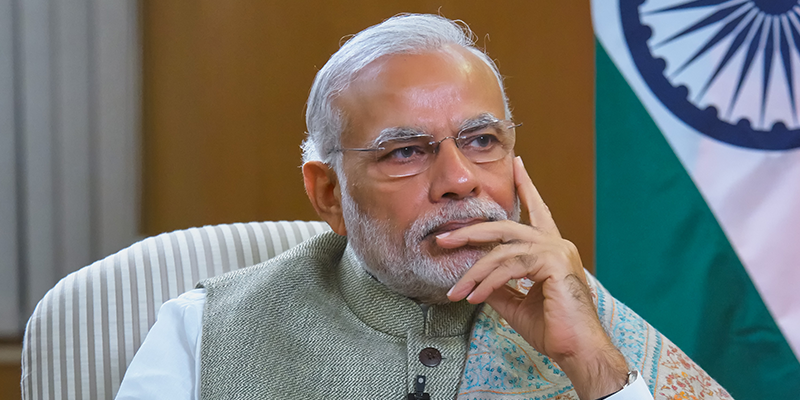
VernacularAI
View Brand PublisherTraining its multi-lingual voicebot in India, Vernacular.ai gears up to make inroads into US and multilingual countries like Indonesia & Malaysia
Amidst all the fast-paced technological innovations, contact centres continue to be at the frontline of delivering customer experience. “Even though businesses have identified different mechanisms to reach out to users such as mobile applications, notifications etc, users still reach out to the call center. Case in point, even when you are able to book a cab in under two minutes through the app, you will want to reach out to customer care if there is a problem,” shares Sourabh Gupta, Co-Founder & CEO, , an AI-first SaaS business enhancing customer experience through intelligent voice conversations.
VoiceTech, AI and Contact Centres: The dots finally connect
However, Sourabh points out that innovation for contact centres has been overlooked and that’s why today they are unable to offer the same convenience that the business provides digitally through other mediums.
This gap has come to the fore amidst the pandemic. The routine lockdowns, mass migration of staff and the challenges in enabling work from home has made it difficult for the contact industry to continue to work the way it had. This struggle to adapt has caused a sudden shift and the industry is trying to pace up its technological edge. And, with this customer contact centre operations have arrived at the centre of voice disruption. Artificial Intelligence (AI) and VoiceTech have presented an opportunity for the industry to overcome challenges of scale and engagement.
Today, due to accelerated digitisation, millions of native-language speakers have arrived online, and it has become important to engage with them in the language that they know and are comfortable in. The need for customer contact centres to support vernacular language customer service has become critical and immediate.
These are just some of the reasons why a startup like Vernacular.ai has become important. Founded in 2016 by IIT Roorkee alumni Sourabh and Akshay Deshraj, Vernacular.ai provides an AI-based voice automation platform – Vernacular Intelligent Virtual Assistant (VIVA), that helps accelerate engagement strategy and utilises speech recognition and natural language understanding (NLU) technology.
Sourabh, in conversation with YourStory’s Business Editor Vishal Krishna, deep dives into challenges and opportunities in voicetech and its potential to create impact.
Making rich audio, multilingual support & natural conversations possible and effortless
VIVA is a next-gen multilingual voice AI platform designed to have natural conversations. VIVA gives enterprises the ability to integrate voice and conversational intelligence into their customer service products. Supporting 160 dialects across 16+ languages, which includes 10 Indian languages, it can identify the real meaning of the context and intent of the user's speech input as per the domain and also enables hyper-personalisation. “An interesting capability of VIVA is that it can also understand a change in language as and when it happens, and can carry the conversation in the new language,” shares Sourabh. Another key highlight is VIVA’s scalable and flexible architecture which allows it to scale with the business call volume easily. “For instance, for a customer, while it handles 1 million calls on regular days, it is equally prepared to handle 10xextra volume in case of a traffic spike.”
At its core, VIVA is a conversational agent that can pursue multiple goals at a time thereby turning the conversation towards the discussions relevant to the goal. In contrast, typical conversational bots can continue with only one goal at a time. “Another important aspect is VIVA’s ability to engage in a good contextual conversation. It can hold onto the context of the exchange and map your next comment back to the previous comments easily. It mimics not just the voice or message of a human but the fluidity and innateness of having a conversation.”
Today the platform offers industry-specific customised solutions across banking and insurance, food and beverages, travel & hospitality, online gaming, Internet Service Providers and DTH, among others. Be it in-bound phone banking services, outbound lead qualifications, post-booking and pre-check-in / travel, or outbound re-engagement initiations, it supports key use cases in these sectors. All of this has made VIVA the go-to solution for 25+ enterprises in India, from multiple sectors. Recently, Vernacular.ai partnered with Axis Bank to launch AXAA, an AI-powered multilingual voice bot to resolve customer queries. “We believe VIVA is a disruptive solution because it brings in a novel offering that provides the same convenience to the users when talking to call centers,” shares Sourabh.
A mammoth of an effort

(left) Akshay Deshraj, CTO & Co-founder, Vernacular.ai and (right) Sourabh Gupta, CEO & Co-founder, Vernacular.ai
This journey has been anything but easy for the team at Vernacular.ai. “While building VIVA, we had to overcome three major challenges. The first was to develop standalone language capabilities, Second, was to handle mixing of multiple languages in a conversation, which is the norm in multilingual cultures. especially like India. Third was scaling up the systems in a sub-linear way so that we could add support for new languages efficiently.” Sharing how they overcame these challenges, Sourabh explains, “We built models for speech recognition, intent classification, entity extraction, speech synthesis and leveraged shared information among languages to address the challenges. For instance, to enable VIVA to understand the nuances in languages, dialects and accents, we made sure that we have healthy coverage of variations in the speaking zones of various languages while collecting data and coupled that with algorithmic and training improvements.” However, he reveals that the subjective differences in language, dialects or nuances make the modeling problem harder than a regular speech classification task. But the most challenging aspect of developing VIVA was overcoming complexities that arose while integrating the models developed in the prototype stage to a real system. However, Sourabh believes these are very interesting problems since they give you perspective on how to create real life ML systems.
From India to the world
Since the launch of VIVA in 2017, the startup made in-roads in the Indian market and saw some leading and growing enterprises embracing VIVA. “Initially, we focused on India because we believed it was the best place to work on a product like ours which deals with high language complexities as well as high call volume.” The groundwork in India made it easier for the startup to expand into other markets, especially those with similar demographics and business challenges as in India. Vernacular.ai recently expanded into the South-East Asian market. “We noticed that there is a high potential in this market for the adoption of Voice AI solutions. Currently, the market is an open field with little to no competition. Similar trends have been witnessed in the middle east, as well. And, these markets are continuing to drive growth despite COVID-19. More importantly, they are home to multiple languages, and ethnicities, which makes us excel coming from a similar country doing implementation in vernacular languages,” shares Sourabh. The startup is also expanding into the US. “It is a good market to be in because of its maturity and the high potential to work with global brands on a large scale.” And, just a week into starting operations in the regions, Sourabh shares that they have already done a couple of pilot projects.
As it continues to grow its global footprint, Vercaular.ai will focus on growing the peripheral strength for VIVA such as increasing the language-scope, improving our idiolect-technology building more features to allow human agents and VIVA to work together while learning from each other. “We are driven by a vision to become the leading voice automation/AI platform in the world,” says Sourabh.











